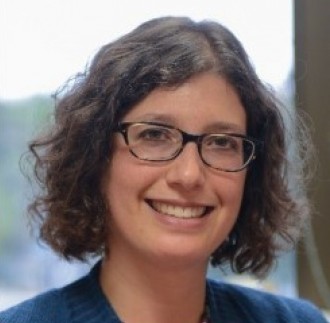
Mara A. Leichtman, Core Faculty member of the African Studies Center and Associate Professor of Anthropology at Michigan State University has won the prestigious fellowship of the Luce/ACLS Program in Religion, Journalism & International Affairs. Luce/ACLS Fellowships support scholars in the humanities and related social sciences pursuing research on any aspect of religion in international contexts with a desire to connect their specialist knowledge with journalists and media practitioners.
The goal of the Luce/ACLS Fellowships is to produce a significant piece of scholarly work and to engage journalistic and media audiences through collaboration with renowned journalists. “As our world continues to seek understanding and a path forward in a time of great uncertainty, we want to celebrate examples of how humanists produce knowledge for the public good,” said ACLS President, Joy Connolly.
Professor Leichtman’s research project, “Humanitarian Islam: Transnational Religion and Kuwaiti Development Projects in Africa,” analyzes individual, civil society, and state giving in Kuwait through Islamic ethical frameworks as motivations for charity. Case studies of trans regional connections with Senegal and Tanzania assess the cultural and religious impact of Gulf funding in Africa while complicating the “giver/receiver” binary. Through exploring Sunni and Shi‘i organizations in Africa, "Humanitarian Islam," unpacks the politics of Kuwaiti giving by situating the aid apparatus within national, international, historical and contemporary contexts. Media coverage has depicted Africa as another sphere for the Saudi Arabia-Iran rivalry in disseminating Sunni-Shi‘i sectarianism. Based on this research, public writing for media and policy outlets will demonstrate that Iran is not the only Shi‘i player in Africa and that Africans are not simply pawns in Gulf power politics.
Professor Leichtman is an anthropologist with expertise in Africa and the Middle East. She is interested in questions of religion, migration, conversion, politics and economic development in Kuwait, Lebanon, Senegal and Tanzania. She has also researched Shi'i Islamic institutions in Europe and the United States. Her book, Shi‘i Cosmopolitanisms in Africa: Lebanese Migration and Religious Conversion in Senegal was published by Indiana University Press in 2015. At MSU, she has taught a wide range of courses, including Islam in Africa, Religion and Ritual, and Global Diversity and Interdependence. She has also led a Culture, Society and Islam in Senegal Summer Study Abroad Program.
Professor Leichtman joins six other fellows from top universities around the United States as one of this year’s fellowship winners. Each fellow will participate in a media training workshop and an annual symposium that brings the scholars into dialogue with renowned journalists to discuss key issues in religion and international affairs. Please join the African Studies Center in congratulating Professor Leichtman for this significant achievement.
Visit the Henry Luce Foundation’s website for more information about the Henry R. Luce Initiative on Religion in International Affairs and its grantmaking.
Read more about the application process for Luce/ACLS collaborative programming grants and fellowships, and about ACLS’s other programs for scholars in the humanities.
Originally published April, 06, 2020
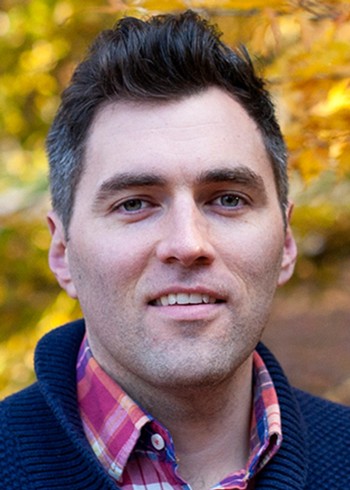 Robert Montgomery, PhD
Robert Montgomery, PhDOver the past several decades, wildlife conservation research by African scholars has slowly increased. Recently, the Research on the Ecology of Carnivores and their Prey (RECaP) Laboratory, leb by Dr. Robert A. Montgomery, has been making significant strides in this area. Dr. Montgomery's work has resulted in increases in the number of African scientists and in the importance of the roles they play in the research process. He seeks to develop a cohort of independent wildlife conservationists from Africa. Therefore, students in his laboratory are involved in the entire scholarly process of designing of research questions, coordinating field research activities, and in the writing and publishing of results as first authors.
Dr. Montgomery’s RECaP Lab stands out in its diversity of students working together to understand various aspects of wildlife ecology. Since the establishment of RECaP in 2014, Dr. Montgomery has mentored a total of 27 students at the undergraduate and graduate levels, 13 of whom are male and 14 female. Among these students, nine are from Africa. This approach has benefited individuals from underrepresented backgrounds in science and has created opportunities for students from around the world to establish strong collaborative networks.
Arthur Muneza, a PhD student from Rwanda, states; “my experience working with Dr. Montgomery has been extremely beneficial. My master’s research on giraffe skin disease under his guidance led to my inclusion in the IUCN, Species Survival Commission, and the Giraffe and Okapi Specialist Group. Following this, Dr. Montgomery enabled my connections with several wildlife research partners in the USA, United Kingdom and in Africa. Had it not been for Dr. Montgomery’s encouragement and advice, my career would not have progressed to the extent it has in such a short time.”
Another of Dr. Montgomery’s students, Tutilo Mudumba, will complete his PhD in Fisheries and Wildlife in the fall of 2019. Tutilo is from Uganda and originally came to MSU to study for a Master’s degree in 2016. He states that Dr. Montgomery has been responsive, empathetic, and genuinely engaged with Tutilo’s research since Tutilo joined the RECaP lab. “Dr. Montgomery’s dedication to my academic welfare and his decision to recommend me for the PhD put me closer to my ambition of becoming a professor of Wildlife Conservation at Makerere University in Uganda.”
Dr. Montgomery has received numerous awards in recognition of his scholarship and teaching, including the Outstanding Faculty Mentor Award from The Graduate School, Michigan State University's Teacher-Scholar Award, the John K. Hudzik Emerging International Leadership award from International Studies and Programs, and Excellence in Teaching Award from the College of Agriculture and Natural Resources.
Originally published February 28, 2020
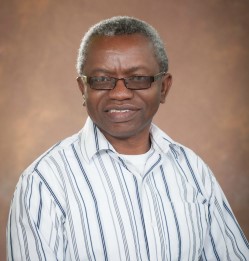 Professor Deo Ngonyani
Professor Deo NgonyaniFulbright-Hays Group Projects Abroad for Intensive Advanced Kiswahili in Arusha, Tanzania, Summer 2016.
Michigan State University Professor Deo Ngonyani led a seven-week Intensive Advanced Kiswahili program to Arusha, Tanzania. The program, offered by the Association of African Studies Programs and the African Language Teachers Association with the support of the U.S. Department of Education Fulbright-Hays Group Projects Abroad (GPA), is designed to significantly expand participant knowledge and understanding of the history, culture, society and contemporary issues in Tanzania. Eleven students received the Fulbright-Hays Group Projects Abroad (GPA) fellowship enabling their participation, including two MSU FLAS students Elexis Grimes and Crystal Nance-Panek. A copy of Ripoti za Kazi za Washiriki wa Mradi wa GPA 2016 highlighting student language proficiency may be found here.
Originally published March 03, 2017
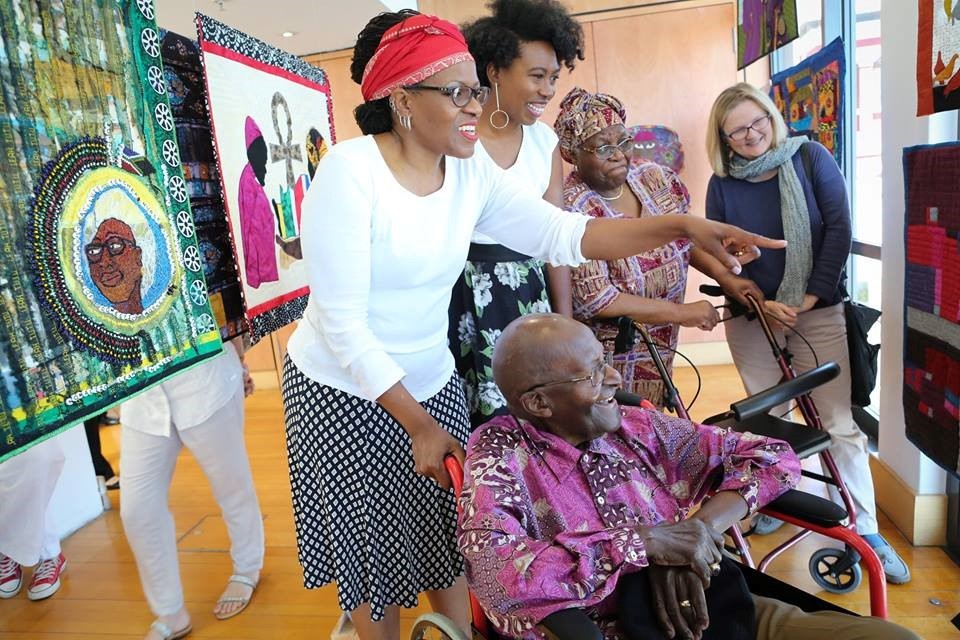 Ubuntu Exhibit
Ubuntu ExhibitAfter more than two years of preparation, the MSU Museum's quilting exhibit, Ubuntutu[1], opened in Cape Town, South Africa in October 2016. The installation, jointly curated in collaboration with the Desmond & Leah Tutu Legacy Foundation, originated as a result of the Museum's efforts to deepen its relationship with colleagues on the African continent. The exhibit was installed at the Mandela Gateway Museum and displayed more than 40 quilts from the United States and South Africa designed to highlight the 'Tutu's love for each other, in addition to their unrequited love for humanity.'
We recently had the opportunity to gain additional insight into the project during a conversation with Visiting Curator at the MSU Museum and Visiting Scholar in the Department of History, Dr. Aleia Brown.
TM: Can you tell me a bit about how the idea for this project originated?
AB: The MSU Museum has deep roots in South Africa, having previously curated an exhibit honoring Nelson Mandela's legacy. The Desmond & Leah Tutu Legacy Foundation expressed an interest in a similar project. The idea presented an opportunity to deepen MSU's connection to Tutu, who was awarded an honorary doctorate from the university and we determined that the exhibit would be a fitting way to honor his legacy.
TM: What was the Museum's role in the project?
AB: The museum's curator, Marsha Macdowell, utilized existing networks to send out a call to artists, collect the work, curate it, and install the exhibit. We also helped plan and participated in the learning event.
TM: How did the process of curating an exhibit in South Africa differ from experience of doing so domestically?
AB: I had never been to South Africa. It is very different when you read about the history and political ideas of a country but it is different when one is actually in a space. As a curator, one needs to know the dimensions of the space. Our South African colleagues would skype the space to me but seeing it in that manner is very different from being there and being able to ensure that everything fits and tells the narrative of what I want to share.
TM: How did you determine which artists/ pieces to include in the exhibit?
AB: We were determined to select quilts created by both US and South African artists because we wanted to create the idea of both countries working together. We wanted the pieces to reflect the diversity of experiences that unite quilters in both locations. In the US, artists were drawn from the Women of Color Quilters Network, an organization known for creating narrative quilts reflecting social commentary. We were interested in quilts that told the story of the Tutu family's love for each other and their love for humanity in general. I think the beauty in this exhibit is seen through the various ways artists interpreted this. We wanted to show various visualizations of what 'Ubuntutu' or love looks like and they came up with some great ideas. In particular, I was very pleased that many of them included Leah Tutu because she is critical to the story as well.
TM: Can you describe the exhibit to those of us not fortunate to see it personally?
AB: The quilts are hanging by translucent filament. From far away, it appears that the quilts are just floating in air. In its entirety, the exhibit looked like a collage of masterfully quilted blocks. At a closer distance, the quilts are very much distinguishable and have their own perspective.
TM: If visitors take away one important point about the importance of quilts and quilting as an art form, what should it be?
AB: I would hope that they see quilting as a creative political action. Historically, especially when women did not have the right to vote, or possess political or economic influence, they could use their artwork as an expression of soft power to influence people. I would hope that it would inspire people to get creative regardless of what you feel your limitations are. There is always a way to be involved and a way to resist. More broadly, I hope they would understand how committed the Tutu's have been to preserving and caring for humanity.
TM: What was your favorite memory of the experience?
AB: Desmond Tutu was in the hospital for a while and the exhibit marked his first public appearance upon his release. It was a huge honor.
TM: What Africa-related Museum projects should we be on the look-out for?
AB: We have an exhibition on Ruth Simms Hamilton and the African Diaspora opening spring 2019.
[1] a combination of Tutu's surname and Ubuntu, a relational ontological approach to African identity.
Originally published February 07, 2017
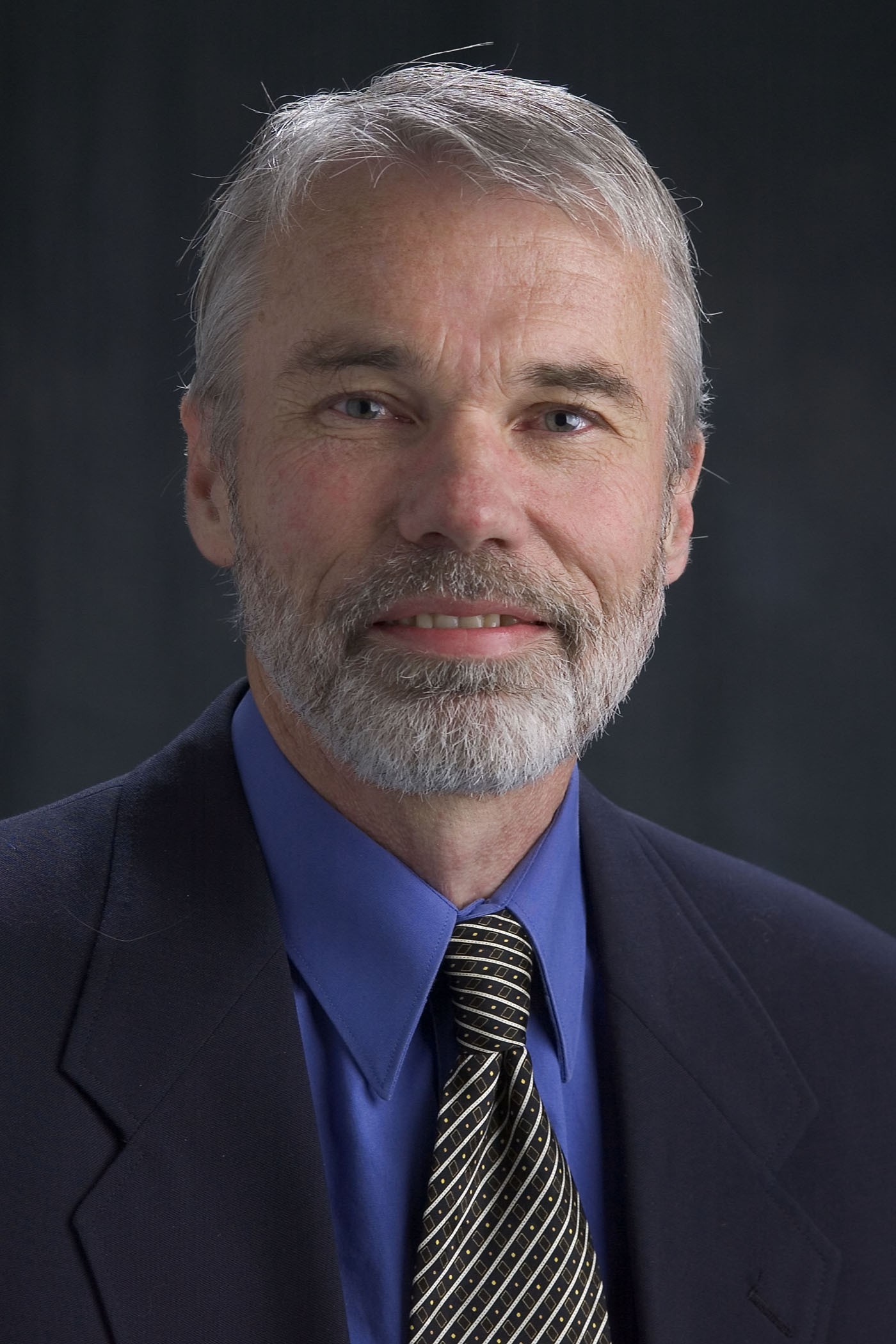 Do Africans still want democracy?
Do Africans still want democracy?According to the results of a newly published survey by University Distinguished Professor of Political Science and African Studies Michael Bratton the answer is a qualified yes.
Professor Bratton is the author of four books, most recently Public Opinion, Democracy and Markets in Africa and over sixty articles and chapters, including in The American Journal of Political Science, World Politics, Comparative Politics, Comparative Political Studies, World Development, The Journal of Democracy, and The British Journal of Political Science. He is also a founder, former executive director, and now senior advisor to the Afrobarometer, a cross-national survey research project on public opinion in Africa.
Read more about the report and Professor Bratton's findings in the Washington Post's recently published feature.
Originally published January 03, 2017.
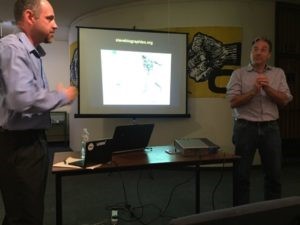 Doing Digital History in South Africa
Doing Digital History in South AfricaOn October 3, 2016, Peter Alegi gave a talk at the University of the Western Cape's Mayibuye Centre in South Africa titled "Doing Digital History: Processes, Platforms & Partnerships." The event was organized by our friend and colleague Dr. Anthea Josias, a UWC faculty member and recent postdoc in the MSU History Department.
The presentation discussed MSU's production of digital projects in collaboration with African scholars and institutions; the importance of making African content and knowledge more widely accessible online; and ways to integrate digital humanities into undergraduate and graduate education.
For additional information, please visit on the MSU Department of History’s website.
Originally published December 06, 2016
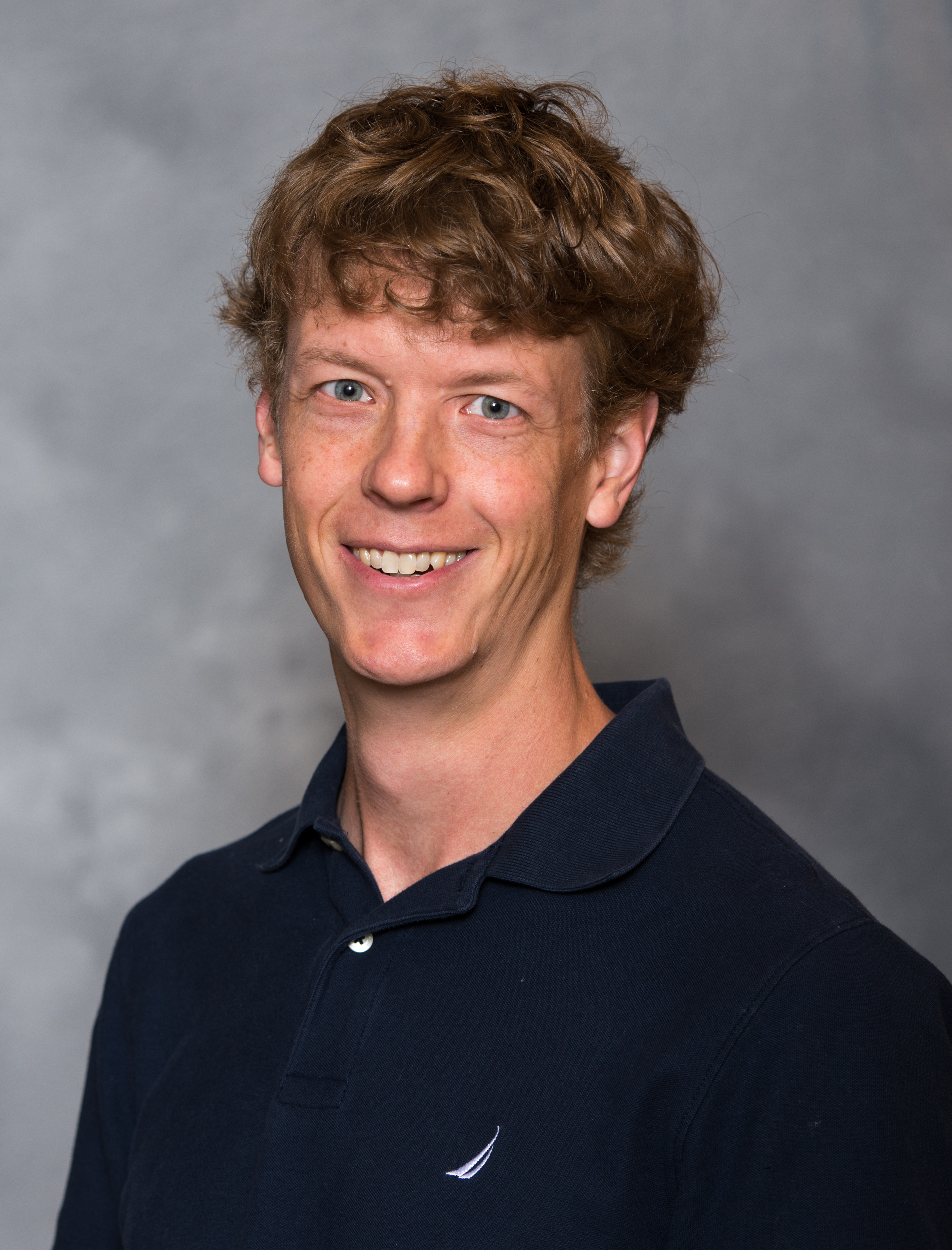 John Aerni Flessner's research focuses on youth, nationalism, development, borders, and decolonization in Lesotho, but the stories he tells are, of necessity, transnational. He is currently working on a book manuscript entitled “I Didn’t Even Know What Independence Meant:” Foreign Assistance, Development, and Nation-Building in Lesotho, 1952-1975″ based on his PhD research, but also on significant new archival work conducted in the interim in London, Washington DC, Pretoria, and Lesotho.
John Aerni Flessner's research focuses on youth, nationalism, development, borders, and decolonization in Lesotho, but the stories he tells are, of necessity, transnational. He is currently working on a book manuscript entitled “I Didn’t Even Know What Independence Meant:” Foreign Assistance, Development, and Nation-Building in Lesotho, 1952-1975″ based on his PhD research, but also on significant new archival work conducted in the interim in London, Washington DC, Pretoria, and Lesotho.
Dr. Aerni Flessner's recent article "Lesotho at 50: The Politics of Dysfunction or the Dysfunction of Politics," featured in the Daily Maverick can be accessed here: Daily Maverick.
Originally published November 04, 2016
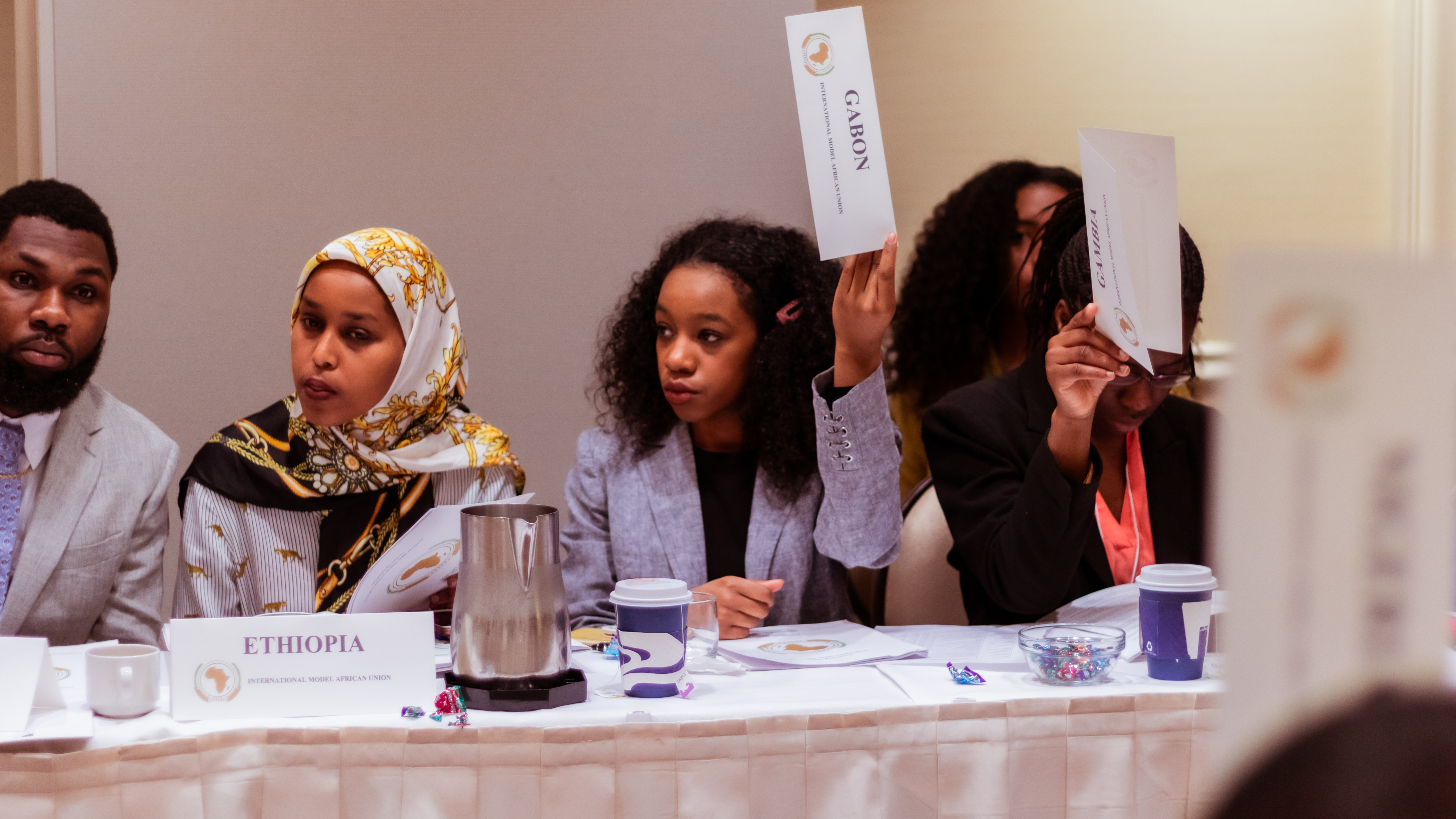 The African Students Leadership Association (ASLA) at Michigan State University is a student organization that includes both graduate and undergraduate students looking to participate in events that promote pan-Africanism and engage with issues related to Africa’s development. According to the organization’s president, Luyando Katenda, ASLA was founded by African students in the diaspora with the intent of uniting African students and instilling in them leadership and diplomatic skills. This year ASLA students participated in The International Model African Union event held at Howard University.
The African Students Leadership Association (ASLA) at Michigan State University is a student organization that includes both graduate and undergraduate students looking to participate in events that promote pan-Africanism and engage with issues related to Africa’s development. According to the organization’s president, Luyando Katenda, ASLA was founded by African students in the diaspora with the intent of uniting African students and instilling in them leadership and diplomatic skills. This year ASLA students participated in The International Model African Union event held at Howard University.
The Model AU is a simulation of the proceedings of the African Union. Students participate in pre-conference study and Embassy briefings in Washington, D.C. The conference aligns with the goals of ASLA in helping participating students gain understandings of the role, structure, and activities of the African Union as well as the economic, social, and political issues facing African countries.
This year, two ASLA team members received Outstanding Delegation Awards for excellent performance in the respective committees they served on – Committee on Economic Matters and the Executive Council. The awards recognize delegates who contribute most to the accomplishment of tasks assigned to the Committee or Council.
Miriam Kaburu, an undergraduate student from Kenya said that this year’s Model AU gave her an opportunity to learn about different African cultures and she was “able to contribute solutions to continent-wide challenges such as the movement of goods and services and border security.” When asked about how ASLA has changed her experience at MSU, Miriam said “ASLA is a space that has allowed me to learn more about my continent than any class or school will ever teach me,” adding that the real value of ASLA is having conversations with others who have experienced issues that most people only read about on paper.
Due to the postponement of all MSU events this spring, ASLA was not able to hold their Comeback Conference for the students who went to the Model AU to talk about their experiences. We are hopeful that this event will be rescheduled for Fall 2020 where we will be able to hear more about the ideas these scholars are engaging with and learning about.